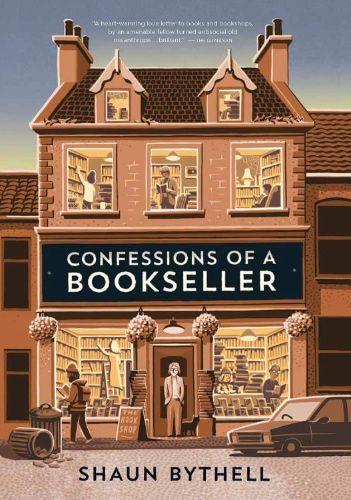Lessons From a Bookseller

One of the habits I try to practice is reading for pleasure at the end of the day. In bed, before I go to sleep, I pick up books that I enjoy reading whether or not they serve any utilitarian purpose.
One of the books I’ve enjoyed recently is Confessions of a Bookseller by Shaun Bythell, although it’s got me reading some of his other books as well. Most of his books follow a similar format: daily diary entries that describe the ordinary days of his life. Written with wry humor, I’ve not only enjoyed these books, but I think they’ve helped me as a pastor.
Here’s why.

Because Work is Daily
Most of Bythell’s work is routine: opening the bookshop, dealing with customers and staff, visiting people who have books to sell, repairing broken boilers, requesting help with broken software systems, moving books, posting books, dealing with online complaints, cooking food, and more.
I’ve read about three years of his diary entries now. Bythell manages to describe the routine in such a way that you feel the mundane nature of work while glimpsing the glory of it.
I once spoke about Paul’s description of ministry from 2 Timothy 2, in which Paul compares ministry to farming. I quoted Kent Hughes:
The farmer’s life involved: 1) early and long hours because he could not afford to lose time; 2) constant toil (plowing, sowing, tending, weeding, reaping, storing); 3) regular disappointments—frosts, pests, and disease; 4) much patience—everything happened at less than slow motion; and 5) boredom.
I mentioned that pastoral work involved everything in this list except for boredom. “Are you sure?” someone asked from the congregation. He was right. There’s a tedium to the weekly rhythms of the pastoral life, just as there is in everyone’s life and work. Seeing the mundane dailiness of a bookseller’s life helped me accept and appreciate the mundane dailiness of mine.
Because People are Challenging
Bythell is cheeky and has no problem describing the troublesome behavior of his customers. They ask stupid questions. They barter and complain. They stand in doorways so that nobody can move from room to room. They take books from shelves and put them back in the wrong place, or even worse, leave them lying around. Staff grumble and insult him, take unauthorized breaks, and generally cause trouble. It’s hard to feel optimistic about humanity when you work with the general public, he says.
Most customers are great, but they’re not the ones that Bythell remembers. And it’s that way in pastoral ministry as well. People are great, and it’s a privilege to pastor them. But people can also be quirky, and working with them can be hard. Bythell gave me some laughs as I enjoyed the stories of his encounters with the foibles of others.
Because Results are Meagre
Each day’s entry includes the total of the online orders, the customers served that day, and the total till. For example:
Online orders: 3
Orders found: 1
Till Total £126.60
9 Customers
There are good days in the used bookselling business, but there are bad ones too, and the mediocre days tend to outnumber the great ones. He quotes R. M. Williamson, who observed in 1904: “The few who make fortunes by bookselling are not to be compared to the many who make no more than a modest livelihood.”
Why sell books? For the love, not for the money. Some work is worth doing even if it’s not a runaway success. I’m glad Bythell continues his work, even if it’s not the most lucrative work available.
Because They’re Funny
I enjoyed these books simply because they made me laugh. Perhaps not everyone will enjoy Bythell’s dry humor, but I did. And sometimes we all just need a laugh.
Bythell’s books aren’t high literature, but I enjoyed them. They gave me some perspective as a pastor, and they brought me some joy, just what I needed at this time.





